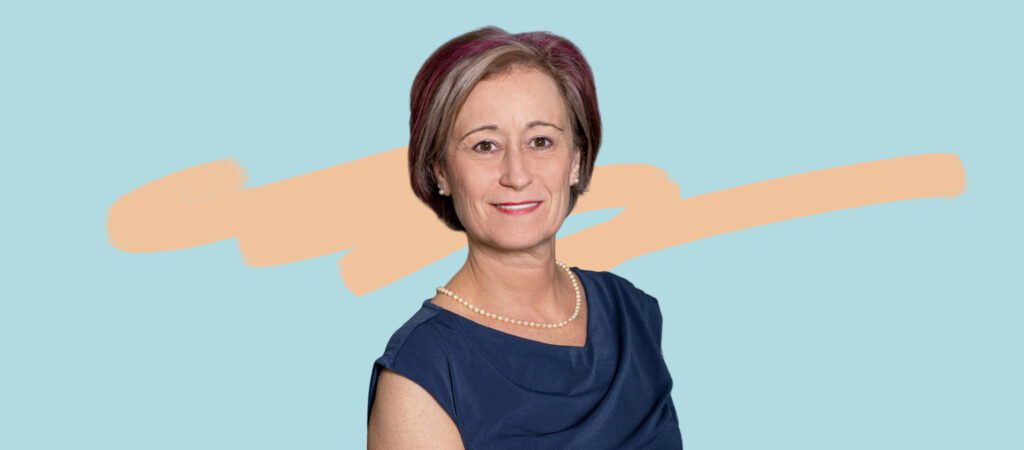An OB-Gyn Talks Breast Cancer Prevention
If you find breast health advice confusing, you're not alone. Nurx OB-Gyn Betty Acker explains the latest thinking.
October isn’t only pumpkin spice season — as anybody with breasts is well aware, this is also the month of pink ribbons and pink everything. Breast Cancer Awareness Month has more than met its important goal of making us aware that 1 in 8 women will be diagnosed with breast cancer, and that there is STILL progress to be made in finding treatments and a cure. But despite all the awareness achieved by the annual flood of pink products, confusion about breast cancer remains. We talked to Nurx medical provider Dr. Betty Acker, an OB-Gyn, on what exactly we should be doing to take care of our breasts.
Should women still do self-exams every month?
A formal monthly self-exam is no longer recommended, because it was leading to needless alarm and didn’t result in better outcomes. By doing these self-exams every month women would find a lot of harmless things in their breasts, their doctors would send them to get follow-up testing, it was stressful for the patients, but wasn’t resulting in earlier diagnoses of breast cancer in significant numbers.
But shouldn’t we feel our breasts occasionally, just to make sure?
I always tell patients to know what’s normal for their bodies. If you feel something, tell your doctor. They may tell you it’s nothing or send you for an ultrasound and if it’s a simple cyst, at least you know. And in the rare chance that it turns out to be a pre-cancer or cancer, you probably caught it earlier than you would have otherwise.
A young person should never freak out if they notice something different. When you’re premenopausal breast lumps are often caused by changes in your cycle, hormonal fluctuations, and fibrocystic changes. I tell patients not to panic about anything. Just know what’s normal for you.
Do genes play a big role in who gets breast cancer?
Yes and no. There are certain genetic mutations that we know put you at significantly increased risk, so if you have a family history of breast cancer you should talk to your doctor about whether you should get tested for those genes and, if you test positive, talk about what your options are for screening and prevention. They are discovering new genes and markers so if, say, your mother had breast cancer a decade or two ago and tested negative for genetic mutations, you may want to get tested, because she may have had a mutation that they didn’t know about at the time. The best use of these genetic tests is testing the person with cancer, if possible.
However, the majority of women with breast cancer have no family history or known genetic mutations. 10-15 years ago the medical community hoped that advances in genetic testing would become a really strong tool in understanding who is at risk and how to tailor prevention strategies to those people, but it hasn’t really worked out that way yet.
Aside from genetic mutations, what are known risk factors? What can women do to prevent breast cancer?
Honestly, that’s a tough one. Most known risk factors are out of your control, things like earlier onset of periods, going through menopause later, and not having children. Smoking appears to make breast cancer more likely in premenopausal women, and there is some evidence that drinking alcohol is a risk factor. There is ongoing research into the impacts of diet, and whether it’s protective to eat a low-fat diet, and into environmental factors, but the evidence isn’t conclusive.
Basically, try to eat a healthy diet, exercise regularly, don’t smoke, don’t drink to excess — all good general health advice of course — but don’t obsess about breast cancer prevention because fear is so self-defeating. It’s not a great motivator.
So what are the guidelines — how should we get screened?
There isn’t a “one-size-fits-all” recommendation. The American College of Obstetricians and Gynecologists recommends that starting at 29 women receive a breast exam at the doctor’s office every 1-3 years, and that they start receiving mammograms as early as 40 and no later than 50, and mammograms can be annual or biannual.
However, I do manual breast exams on patients younger than 29. That’s just part of my routine as a doctor. Talk to your doctor and share your specific risk factors. If somebody in your family had breast cancer, or a related cancer like ovarian, share as many details as you can, like whether their cancer was pre- or post-menopausal. Together with your doctor you can come up with a screening plan that makes sense for you.
Is there good news about breast cancer?
Absolutely. Because of advances in treatment, breast cancer is not a death sentence. For many women it is curable and for many others it is a chronic condition that you manage. Oncologists have a much greater understanding today of different types of breast cancer and how to target them with therapies, and that knowledge is only increasing.
Finally, it’s important to keep breast cancer in perspective. Heart disease is far and away a much bigger killer of women. Take care of yourself, but don’t live in fear of breast cancer.





